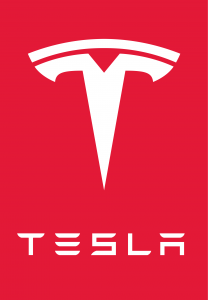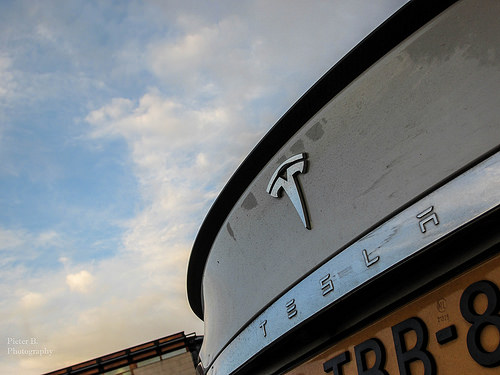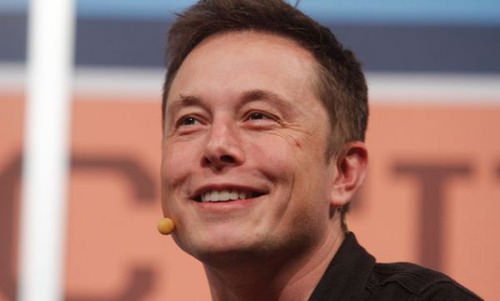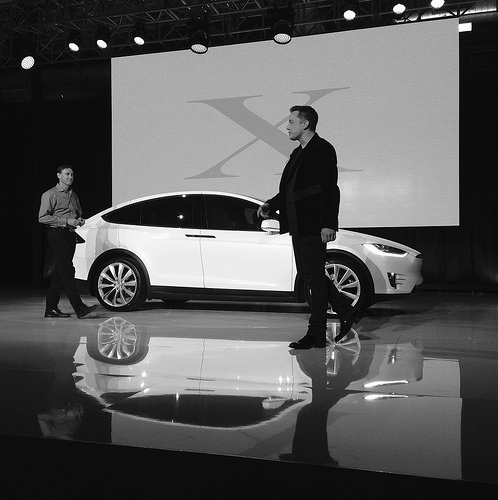
SpaceX.
Tesla Motors.
It’s almost impossible to believe these incredible companies are the brain child of the same man…
But sometimes truth is stranger than fiction.
Meet Elon Musk. He’s the young, ultra-successful entrepreneur doing cutting-edge work in solar-powered homes, electric cars, and private space travel. Robert Downey Jr. used him as inspiration when preparing for his role as Tony Stark in the Iron Man movies.
Oh yeah:
Musk is also one of a very select few to start not just one or two, but three billion-dollar companies.
Does he have some advice that will take your business to the next level?
You bet.
Too Much Business Advice Is Overwhelming
There’s more business advice available today than ever before.
More content is being created and published online by the second. Blog articles. Books. Podcasts. You could read and listen for a thousand years and never reach the end of it.
This glut of information makes it easy to fall into “analysis paralysis” mode, that trap when you constantly learn about new concepts, but never buckle down and apply them.
There is great advice to be found. The challenges are: 1) separating the gems from the mediocre stuff, and 2) breaking it down into a few actionable steps. You don’t want to end up with a 100-point checklist of “how to grow your business” – that’s completely overwhelming!
That’s why it’s so important to consider the source of any business advice. Nothing beats firsthand experience. Elon Musk:
- Sold his first company, Zip2, for $307 million.
- Sold PayPal, his second company, for $1.5 billion in stock just three years later.
- Founded SpaceX and Tesla Motors.
- Won a $1.6 billion contract from NASA.
That kind of resume is strong evidence that his massive success isn’t a fluke. He’s developed strategies that make it a repeatable process.
Here are some of Musk’s key principles you can apply in your own business:
7. A Relentless Focus on Quality
Photo Credit: Pieter B. Photography
I’d say stay very focused on the quality of the product. People get really wrapped up in all sorts of esoteric notions of how to manage etc., [but] I think people should get much more focused on the product itself – how do you make the product incredibly compelling to a customer – just become maniacally focused on building it better. – Elon Musk, Rock Solid Finance interview
Did you know Tesla has a zero dollar marketing budget?
Despite operating in the emerging alternate energy car market (and rampant skepticism that electric cars could even compete), Tesla had an incredibly successful IPO in 2010 and continues to struggle to produce cars fast enough to meet demand.
It seems amazing that they’ve been able to pull that off without marketing, but Elon Musk’s explanation for their success is simple: a relentless focus on making the highest-quality cars possible.
The vast majority of Tesla’s budget (and about 70% of Musk’s time and energy as CEO) is devoted to research and development. Musk only spends 2 to 3% of his time talking to the press, with plans to cut it down to 1% so he can free up time for – you guessed it! – more focus on engineering and design.
Marketing done right can be extremely powerful; I’m not saying it has no place in your business model. The vast majority of us don’t have Elon Musk-level capital to fund our businesses and get them off the ground. But if it comes down to a choice between more marketing for a mediocre product, or money money spent improving product quality, I’d choose quality every time.
Quality outlasts trends and bids for brief attention. It leaves a lasting impression – one that turns customers into lifelong fans and the most effective marketers you could dream of.
6. Go out of Your Way to Solicit Critical Feedback
Photo Credit: Wolfram Burner
When I spoke with someone about the Tesla Model S, I didn’t really want to know what’s right about the car. I want to know what’s wrong about the car. – Elon Musk, Hubspot article
Asking for feedback can be scary.
You poured sweat, blood, and tears into developing your product or service. You have a strong vision for your business’s future, and you’ve spent a lot of time and effort making it reality.
That makes it even harder when reality starts pushing back.
A lot of businesses do their best to avoid feedback (though it eventually comes to us all). Musk recommends another approach: seek it out.
Not only does he open up his products to feedback. He specifically searches for what people don’t like about the product. Embracing critical (and often painful) feedback gives him valuable insights how to improve – insights he never would have had on his own.
It’s so tempting to seek out positive feedback and tune out anything critical. You poured a lot of work into your ideas, so of course you’d like validation and praise.
But critical feedback is much more valuable.
It stings, but it gets less painful as you get used to it. By always keeping an eye out for potential weaknesses and blind spots, you’ll shore up your products and services and make them even more valuable to the people who really matter: your customers.
5. Forget about Multitasking
Photo Credit: proZesa
I’d really strongly recommend someone to just focus on one company and throw as many hours at it as you possibly can. Really work morning to night. Think about it in your sleep. Seven days a week. No breaks. That’s what you should do when you are starting a company. – Elon Musk, Inc.com article
This is an interesting one because it’s Elon Musk urging us on what not to do.
He’s the CEO of two companies, Tesla and SpaceX. This creates incredible demands for his time – demands that translate into 100-hour workweeks and mountains of stress.
Musk is pulling off the balancing act for now, but he doesn’t recommend it because it’s a recipe for overwhelm and loss of freedom.
Instead, he encourages us to pour all of our time, attention, and available cash into one business to make it succeed.
This might mean pivoting if you feel you’ve spread yourself too thin.
What if you specialized instead of trying to serve multiple markets?
What if you put your plans to develop a product on hold while you build a more stable income offering services?
The concepts Musk used to achieve his incredible success are simple, but they require a ton of energy and undivided attention. He’s splitting his time now, running two companies – and regretting it.
Learn from his mistake!
Every step you can take to streamline your business and improve your focus – whether it’s trimming down your product line, firing a problem client who’s monopolizing your time, or changing your work environment – helps.
4. Work Harder Than Anyone Else
I’m starting to wonder if Elon Musk is part man and part machine
When he started his first business with his brother, they took turns sleeping on a couch in the office while the other worked, occasionally going over to the local YMCA for a shower. Eventually Musk gave up and just started sleeping on a beanbag by his desk, where an intern would wake him up every morning so he could go straight to work.
This isn’t the glamorous life of a jet-setting billionaire you might imagine…
But it’s key to Musk’s success.
In his view, if you aren’t 100% committed to putting in the long hours, starting a business is just a recipe to make yourself miserable. It isn’t worth the trouble.
A lot of people today are focused on shortcuts, hacks, and cutting corners. But there really is no substitute for putting in the hours of hard, focused work.
By all means, work smart, but work hard too, especially when you’re getting your business off the ground. You can back off when you’ve built your customer base and have the resources to hire people to help.
3. Know Your End Game
Photo Credit: Michael Seeley
It might seem counterintuitive when you’re just starting a business, but thinking about the endgame can help you make better decisions now and moving forward.
The last thing you’d want is to create a successful business, but to end up chained to your office and smart phone 90 hours a week with an unbearable amount of stress. Too many people end up prisoners of their own success.
That’s why it’s crucial to think about this stuff now.
How do you envision your business when it becomes successful?
What does “success” even mean to you?
It might mean staying around for the long haul and managing a growing team. Or creating an asset you can sell, reap a nice profit, and move on to your next venture.
Musk’s resume reads like a textbook of successful business exits. There’s a pattern. He founds a company, grows it, and sells it for a nice chunk of cash. Then he rolls a lot of that cash into an even larger company, and the cycle continues. It’s all very strategic.
You might not know exactly where you want your business to end up, but it’s important to think about this stuff and get a general idea of where to aim. Plan to succeed!
2. Plan for (and Embrace) Failure
Photo Credit: jurvetson
Failure is an option here. If things are not failing, you are not innovating enough. – Elon Musk, Inc.com article
If you look at the businesses Musk started, they were all risky ventures: big bets in emerging industries – the Internet (in 1995), electric automobiles, and even private space travel!
Those bets have paid off tremendously.
None of it would have been possible if Musk shied away from failure.
Many business owners see failure as the monster under the bed. They don’t talk about it, try not to think about it, and pray it will never come out from the shadows to grab them.
Musk has a completely different approach. He sees failure as inevitable. He plans for it to and structures his businesses accordingly
That’s a big reason why he invested such a large amount of start-up capital ($100 million) into his company SpaceX. Musk knew it was highly unlikely they’d have a successful rocket launch the first time around, but he didn’t want a single setback to cripple the company. So he gave the budget enough padding for multiple launches. The third one was successful.
Accommodating this series of failures before the big success paid off to the tune of a $1.6 billion contract from NASA to resupply the international space station. That wouldn’t have happened if Musk hadn’t factored a few failures into his start-up capital.
This kind of thinking is invaluable. If you start taking calculated risks – after asking yourself what’s the worst that could happen and playing out the scenarios – you allow yourself to innovate and reap huge rewards.
Failure will come, whether we’re ready for it or not. Take the proactive approach. Plan for it. Embrace it.
1. Align Your Business with a Higher Purpose
Photo Credit: proZesa
[Elon Musk] is very much the person who, when someone says it’s impossible, shrugs and says, ‘I think I can do it.’ – Max Levchin, Inc.com article
One thing you’ll notice in Elon Musk’s interviews is he never really brings up money or profits. He has a boatload of it, but money isn’t his main motivator.
His businesses are built on something deeper. He didn’t start SpaceX to make cash; he wanted to pave the way for space travel and colonization. He didn’t start Tesla to make a quick buck; he wanted to prove to the world that electric cars could be sleek, fast, and elegant.
Paradoxically, by looking outward and considering the impact he wants to make on humanity (and doing everything he can to make that impact), Musk attracts more money than he knows what to do with.
You can do the same.
You might not have ambitions so grand as planetary colonization, but you can change people’s lives.
What gets you up in the morning?
Aligning your business with a deeper purpose – focusing on impact instead of dollars – will keep you working hard and striving to improve. It’s great motivation for when things get tough or when you don’t see immediate results.
Impact first, and the money will follow. It’s a subtle difference… but it’s such an important one.
We spend so much of our lives working anyway. Why not make that time as meaningful as possible?
Execution Makes All the Difference
Nothing Elon Musk recommends is truly unheard of or groundbreaking.
That’s part of what makes it so powerful.
He lays out a simple, straightforward framework that any of us can follow. Maybe the “secrets of success” aren’t nearly as obscure as they seem.
The challenge lies in the execution. Being willing to put these principles into action day after day – year after year – is what separates mediocre businesses from mega-successful ones.
You might not have plans to send a rocket to Mars…
But you can use these tips to wow customers, grow your revenue, and leap ahead of your competitors. There’s no better time to start than now.
Which of Elon Musk’s tips do you plan to apply to your business? Did anything he said surprise you? Leave a comment below and let me know!







